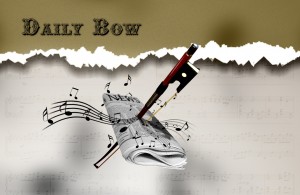
Andy McSmith is a senior writer at The Independent, holding that position since April 2007. He recently had this to say about classical music:
I’ve discovered classical music isn’t just for snobs
A century ago people cared passionately about classical music. Today hearing it is a skill that has to be learnt, but it’s worth it.
These lines gave me some pause. For lovers of classical music, we may be at times too quick to forget what it is like for listeners who are not die-hard fans of the musical genre. The melodic beauty and harmonic intricacies that we take for granted may not immediately call out to other listeners with such distinctive presence.
McSmith goes on to write that:
Classical music is an acquired taste. I have not quite recovered from the extraordinary experience of hearing a live performance of a 100-year-old concerto at the Royal Festival Hall last week, but I know that the notion that classical music can be as exhilarating in its own way as a Rolling Stones revival sounds off-beam to most of the population.
That is understandable. I grew up in a home where there was no classical music until late on. In my late teens, I could cope with a five-minute snatch of a popular classic, but anything as long as a concerto or a symphony came over as interminable sound without rhythm or beat, and too many violins. I found my way into the classics by seeing a very violent film called A Clockwork Orange, in which torture scenes were depicted to a very lively soundtrack, said to be part of Beethoven’s Ninth Symphony. I was intrigued enough to buy myself a record of the Ninth with money from my 21st birthday, but still couldn’t hear it properly, because hearing classical music is a skill that has to be learnt. Then, by good fortune, I saw a TV programme which had a shot of a man walking up a steep hill to another interesting piece, which I thought I recognised. It was the opening of the part of the choral section of the Ninth Froh, wie seine Sonnen. With two footholds on a cliff face of incomprehensible noise I was finally able to begin to hear the work properly. Once you have cracked one symphony or concerto, the next comes more easily.
When McSmith wrote that he couldn’t hear classical music properly, I immediately understand where he was coming from. While loving classical music may come easier to some than others, the complexity of the art form requires more from its listeners than say, pop music.
That’s why I’m thankful for classical music appreciation efforts, which are in a way more important than all of the high-level theory and performance classes dedicated to orchestration, form & analysis, counterpoint, and the annals of music history. Teaching appreciation is more important because it builds listeners and audiences. In order for classical music to thrive, as with any music, there must be more listeners than performers.
If classical music is indeed an acquired taste, it is our responsibility to help as many people as possible “acquire” it!
Read the full story – I’ve discovered classical music isn’t just for snobs
Other stories from the classical music world
- Last week on our Monday Bow we shared some top lists of classical music for the year, but they are still rolling in: “John Cage rocked, Britten’s War Requiem returned to Coventry and Daniel Barenboim did the Proms and Olympics in a night…” Check out writer Fiona Maddock’s choice over the Guardian for the best classical music of 2012.
- Learn more about violin teacher Wei He and his ambitious violin studio at the San Francisco Conservatory of Music
- As one author writes: “today, classical music has a whole different place in our cultural awareness.” This has to do with the way it is used in today’s feature films.
- The New Century Chamber Orchestra (NCCO) celebrates the virtuosity its individual members
- Charles Rosen wasn’t the only musical titan who just passed away. Indian legend Ravi Shankar died last week at 92.














No comments yet.